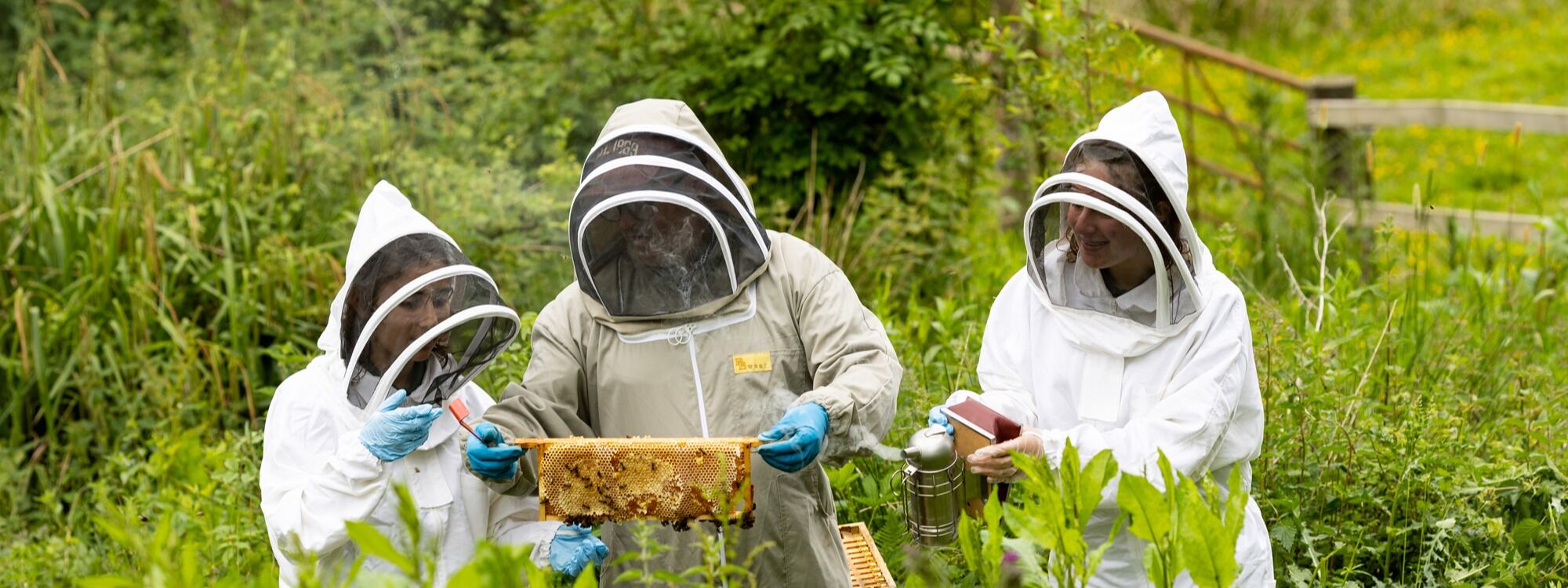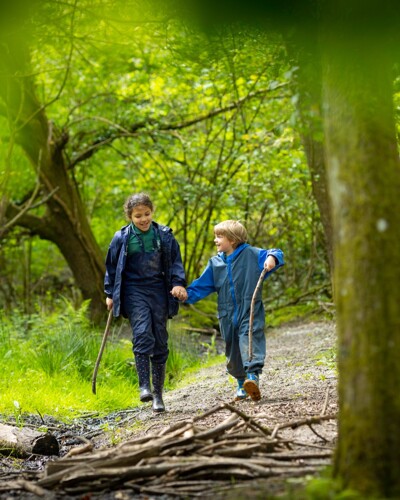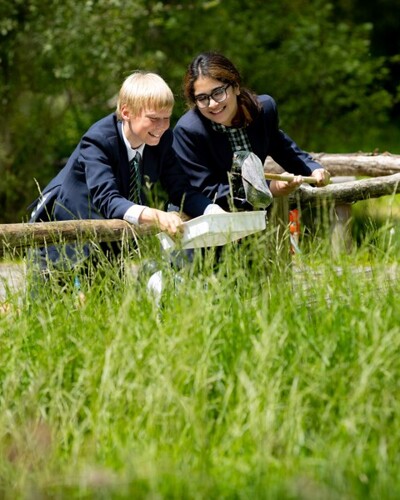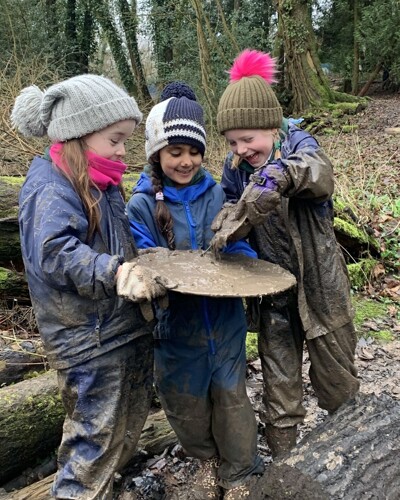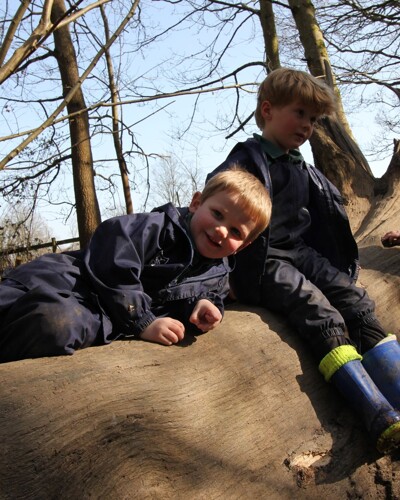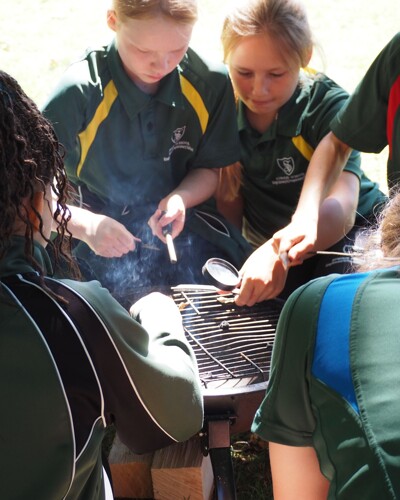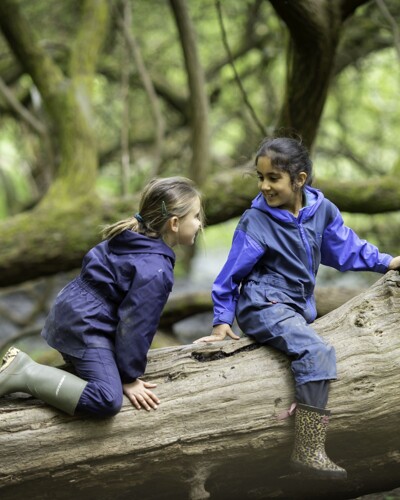Outdoor Learning
Pupils at Stroud are no strangers to learning outside their classrooms and we proudly embrace our wild side at Stroud. Our Head of Outdoor Education, Mr Silas Caie, focusses on unlocking the potential of the school’s extensive natural areas whilst developing the provision of learning outside the classroom across all year groups.
From Forest School in our own natural woodlands, to Beach School down on the coast and bush craft adventure camps, there is a progressive and holistic outdoor curriculum to complement our academic curriculum and help children flourish in all that they do. Where many schools curtail Forest School activities after the Pre Prep, children at Stroud take place in regular outdoor learning opportunities each term throughout their time at the school - all the way up to Year 6!
Our exciting and unique outdoor curriculum enables children to try new skills, measure and take risks, respond to a variety of challenges in a range of physical contexts and environments, work collaboratively and to contribute to the maintenance and development of the wild side of the school, making them responsible stewards of their own environment.
We believe successful learning takes place when children are happy. Our woods, fields, ponds, stream and farm offer the perfect reset button every day for children, to nourish their souls and ensure they flourish in the classroom.
Stroud has been awarded the ‘Council for Learning Outside the Classroom’ (CLOtC) Silver Award, a national accreditation that has been endorsed by the Department for Education, and is working towards its Gold Award.
The School has been praised for outstanding achievement in sustainable development education and management, and continually improves the environmental performance of the School and the wider community.
Ongoing projects include gardening clubs, planting an orchard in the school grounds and further energy saving and charity initiatives.
Little Meadow
Little Meadow is a pocket of wonderful nature on our doorstep, surrounded by glorious countryside. This wild space gives our Early Years children the opportunity to immerse themselves in nature and wildlife, grow vegetables and harvest apples from our orchard.
Our sustainably built Meadow Lodge in our Little Meadow area provides a hide to watch birds and other wildlife and offers a space to reflect. Little Meadow is surrounded by our farm. Our children love to visit our ponies, goats and chickens, learning to feed and care for them.
Our Woods and Ponds
With 22 acres at our disposal, spending time in our school grounds is very important to us and we seize every opportunity to get muddy in the woods or wet in the stream.
We enjoy bush craft activities and offer children the chance to cook their own food over a campfire and camp out overnight at school in tents on the field. We build dens, embrace teamwork opportunities and enjoy peace and quiet watching the wonderful nature for our newly built bird hide.
Our children also enjoy and help manage our established ponds which were re-landscaped in 2019. This has taught them about husbandry and the importance of biodiversity to farming and the wider environment as well as pond dipping for invertebrates.
Farm
We are lucky enough to have paddocks and enclosures that house a selection of farm animals including pigmy goats, a variety of poultry and water fowl and two ponies,
Children are shown early on how to care for and respect all of our animals. Through Farm School they can take part in Farm Club where they learn the skills of animal husbandry, practical animal handling, behaviour, health and nutrition. They also get to collect fresh eggs and have the chance to be involved in the designing and building of pens and fencing.
Children take care of the animals under the guidance of Miss Anna Godwin, our Farm Manager, who is qualified in Animal and Zoo Management.
Bees
If you look hard enough you will find our bee hive, tucked away between the farm and the ponds.Groups of children look after the school bee colony, where they are able to don the bee keeping suits and interact with the bees up close.
Our philosophy is to manage the bees to be sustainable; this means that they produce enough honey for themselves during the busy months and lay down enough stores to get them through the winter. When the children come down to carry out a hive inspection, they wear bee suits and we like to encourage them to hold the frames, to smell the honey and to try and find the queen.
